You are using an out of date browser. It may not display this or other websites correctly.
You should upgrade or use an alternative browser.
You should upgrade or use an alternative browser.
Essential Afro-Latino/ Caribbean Current Events
- Thread starter Poitier
- Start date
More options
Who Replied?Data-Hawk
I have no strings on me.
Just a lil eye candy to inaugurate this thread creation
GoooooooooooooooooooD Gawd......not to take this thread off track......but Dammn......The singer/one in pink...... reminds me of a thicker younger stacy dash.
God it hurts so much to watch this video.
I gotta remember to post this movie from work tomorrow its on the work e-mail. Looked like a real good movie but it was Afro-Latin inspired on some Pro Black shyt.
GoooooooooooooooooooD Gawd......not to take this thread off track......but Dammn......The singer/one in pink...... reminds me of a thicker younger stacy dash.
God it hurts so much to watch this video.
There are more black & mixed women in Brazil than there are Black people in the US

old article but
A Language Thrives in Its Caribbean Home

WILLEMSTAD, Curaçao — Thousands of languages spoken by small numbers of people, including many of the Creole languages born in the last centuries of human history, are facing extinction. But a little-known language spoken on a handful of islands near the coast of Venezuela may be an exception.
“Mi pais ta un isla hopi dushi, kaminda mi lombrishi pa semper ta derá,” goes a passage in Ms. Calister’s hit song “Mi Pais.” (That roughly translates as “My island is a lovely place, where my umbilical cord forever lies.”)
Of 30 or so radio stations here, nearly all broadcast in Papiamentu. Legislators in Parliament debate in Papiamentu. Bookstores sell novels and poetry collections in Papiamentu. Turn on the television and there, too, one hears Papiamentu.
Transforming status quo into law, officials here recognized Papiamentu as an official language in 2007, with Dutch and English. That was a rare distinction for a Creole, and one made in few other countries. Papua New Guinea made its English Creole, Tok Pisin, official, as the island nation of Seychelles did with its French Creole, Seselwa.
Still, linguists say the endurance of Papiamentu stands out at a time when many Creoles face the threat of being swallowed up by dominant world languages like English or French. Definitions vary, but Creoles are generally considered to be restructured languages formed in the last several centuries from contact with colonial languages like English, Portuguese or Arabic.
“While English and French Creoles get more attention, the extension of Papiamentu into different domains like writing, education and policy is incredibly high,” said Bart Jacobs, a Dutch linguist who studies Papiamentu. “This bodes very well for the language’s chances to survive, and possibly even thrive well into the future.”
Scholars, writers and composers here say Papiamentu’s resilience has roots in a mixture of radical politics and pragmatic planning. They often tie Papiamentu’s resurgence to a violent uprising against symbols of Dutch power on May 30, 1969, known here as Trinta di Mei.
“Trinta di Mei allowed us to recognize the subversive treasure we had in our language, which existed for centuries so we could keep secrets from the Dutch,” said Frank Martinus, 73, a Curaçaoan writer and founder of Kolegio Erasmo, a grade school where Papiamentu is the main language.
Papiamentu still has a way to go in usurping Dutch from some spheres. Curaçao’s laws are still written in Dutch. Some schools start out teaching children in Papiamentu, but then transition to Dutch, bowing to the economic opportunities the Netherlands still provide for many islanders.
Even Mr. Martinus wrote his 1973 novel “Double Play,” considered the masterpiece of modern Curaçaoan literature, in Dutch. He said that was a necessity at the time he wrote it, since he needed money fast while living in the Netherlands.
Now the novel is being translated into Papiamentu by Lucille Berry-Haseth, a Curaçaoan poet. Ms. Berry-Haseth, 73, revels in Papiamentu’s playfulness and capacity to absorb new influences, joking in an interview, for instance, that she was a “puitu killer,” or “cradle robber,” since she was a few years older than her husband. “Puitu” (pronounced poo-EE-too), she explained, came from the Spanish word “pollito,” for “little chicken” or “chick,” while “killer” came from English.
Papiamentu’s origins fascinate linguists; it emerged in a Dutch colony but its core vocabulary is a mix of Portuguese and Spanish. (Dutch Creoles crystallized elsewhere in the Dutch empire.)
Some scholars say Papiamentu evolved from a Portuguese-based lingua franca once used in West Africa, developing further in the 17th century when Curaçao was an entrepôt for South America’s slave trade and a cosmopolitan Dutch outpost settled in part by Portuguese- and Spanish-speaking Jews. Whatever its origins, Papiamentu today evokes a bit of the rhythm of Brazilian Portuguese, sprinkled with words from Dutch and English but also largely from the Spanish of Venezuela.
Papiamentu speakers frequently employ racy slang that would seem out of place in the pages of a family newspaper but not on the streets of Caracas. Moreover, many Curaçaoans are remarkably polyglot, fluently speaking Papiamentu, Dutch, English and Spanish (black excellence .
.
Papiamentu’s vibrancy is related to the creation in 1998 of the Fundashon pa Planifikashon di Idioma, a language institute that maintains an orthography. Papiamentu also thrives on the street level, with immigrants from Haiti and Suriname often picking up the language quickly and using it instead of Dutch.
Derek Bickerton, an American scholar of Creoles (he defines them as “b*stard tongues” of “dubious and disputed parentage”), suggests other reasons for Papiamentu’s strength, including the weakness of Dutch compared with other colonial languages. Other linguists say the language thrives because of its use in trade and the relative prosperity of Papiamentu-speaking islands, which have per capita incomes of more than $16,000 a year.
Officials here said Papiamentu will keep its official status when the Netherlands Antilles is dissolved in October, a largely anticlimactic political rearrangement. Curaçao and the Dutch half of St. Maarten will become independent nations in the Kingdom of the Netherlands, while three other islands become the equivalent of Dutch municipalities. The Netherlands will continue to oversee the defense and foreign affairs of all the islands involved, as it does now with Aruba.
For some here, the secret of Papiamentu’s survival lies in its use as a language of both resistance and renewal.
Helmin Wiels, 51, leader of the leftist party Pueblo Soberano, which favors a complete break from the Netherlands, said that if Curaçao were to achieve full independence (black excellence ), its official language should be Papiamentu, along with English and Spanish. As for Dutch, he said: “No way. Dutch is a dead language the same as Greek or Latin.” hard on cacs
), its official language should be Papiamentu, along with English and Spanish. As for Dutch, he said: “No way. Dutch is a dead language the same as Greek or Latin.” hard on cacs 
“The preservation of Papiamentu would allow us to absorb the influences of our South American brothers,” he said, “while keeping alive that which makes us unique.”
http://www.nytimes.com/2010/07/05/world/americas/05curacao.html
A Language Thrives in Its Caribbean Home

WILLEMSTAD, Curaçao — Thousands of languages spoken by small numbers of people, including many of the Creole languages born in the last centuries of human history, are facing extinction. But a little-known language spoken on a handful of islands near the coast of Venezuela may be an exception.
“Mi pais ta un isla hopi dushi, kaminda mi lombrishi pa semper ta derá,” goes a passage in Ms. Calister’s hit song “Mi Pais.” (That roughly translates as “My island is a lovely place, where my umbilical cord forever lies.”)
Of 30 or so radio stations here, nearly all broadcast in Papiamentu. Legislators in Parliament debate in Papiamentu. Bookstores sell novels and poetry collections in Papiamentu. Turn on the television and there, too, one hears Papiamentu.
Transforming status quo into law, officials here recognized Papiamentu as an official language in 2007, with Dutch and English. That was a rare distinction for a Creole, and one made in few other countries. Papua New Guinea made its English Creole, Tok Pisin, official, as the island nation of Seychelles did with its French Creole, Seselwa.
Still, linguists say the endurance of Papiamentu stands out at a time when many Creoles face the threat of being swallowed up by dominant world languages like English or French. Definitions vary, but Creoles are generally considered to be restructured languages formed in the last several centuries from contact with colonial languages like English, Portuguese or Arabic.
“While English and French Creoles get more attention, the extension of Papiamentu into different domains like writing, education and policy is incredibly high,” said Bart Jacobs, a Dutch linguist who studies Papiamentu. “This bodes very well for the language’s chances to survive, and possibly even thrive well into the future.”
Scholars, writers and composers here say Papiamentu’s resilience has roots in a mixture of radical politics and pragmatic planning. They often tie Papiamentu’s resurgence to a violent uprising against symbols of Dutch power on May 30, 1969, known here as Trinta di Mei.
“Trinta di Mei allowed us to recognize the subversive treasure we had in our language, which existed for centuries so we could keep secrets from the Dutch,” said Frank Martinus, 73, a Curaçaoan writer and founder of Kolegio Erasmo, a grade school where Papiamentu is the main language.
Papiamentu still has a way to go in usurping Dutch from some spheres. Curaçao’s laws are still written in Dutch. Some schools start out teaching children in Papiamentu, but then transition to Dutch, bowing to the economic opportunities the Netherlands still provide for many islanders.
Even Mr. Martinus wrote his 1973 novel “Double Play,” considered the masterpiece of modern Curaçaoan literature, in Dutch. He said that was a necessity at the time he wrote it, since he needed money fast while living in the Netherlands.
Now the novel is being translated into Papiamentu by Lucille Berry-Haseth, a Curaçaoan poet. Ms. Berry-Haseth, 73, revels in Papiamentu’s playfulness and capacity to absorb new influences, joking in an interview, for instance, that she was a “puitu killer,” or “cradle robber,” since she was a few years older than her husband. “Puitu” (pronounced poo-EE-too), she explained, came from the Spanish word “pollito,” for “little chicken” or “chick,” while “killer” came from English.
Papiamentu’s origins fascinate linguists; it emerged in a Dutch colony but its core vocabulary is a mix of Portuguese and Spanish. (Dutch Creoles crystallized elsewhere in the Dutch empire.)
Some scholars say Papiamentu evolved from a Portuguese-based lingua franca once used in West Africa, developing further in the 17th century when Curaçao was an entrepôt for South America’s slave trade and a cosmopolitan Dutch outpost settled in part by Portuguese- and Spanish-speaking Jews. Whatever its origins, Papiamentu today evokes a bit of the rhythm of Brazilian Portuguese, sprinkled with words from Dutch and English but also largely from the Spanish of Venezuela.
Papiamentu speakers frequently employ racy slang that would seem out of place in the pages of a family newspaper but not on the streets of Caracas. Moreover, many Curaçaoans are remarkably polyglot, fluently speaking Papiamentu, Dutch, English and Spanish (black excellence
 .
.Papiamentu’s vibrancy is related to the creation in 1998 of the Fundashon pa Planifikashon di Idioma, a language institute that maintains an orthography. Papiamentu also thrives on the street level, with immigrants from Haiti and Suriname often picking up the language quickly and using it instead of Dutch.
Derek Bickerton, an American scholar of Creoles (he defines them as “b*stard tongues” of “dubious and disputed parentage”), suggests other reasons for Papiamentu’s strength, including the weakness of Dutch compared with other colonial languages. Other linguists say the language thrives because of its use in trade and the relative prosperity of Papiamentu-speaking islands, which have per capita incomes of more than $16,000 a year.
Officials here said Papiamentu will keep its official status when the Netherlands Antilles is dissolved in October, a largely anticlimactic political rearrangement. Curaçao and the Dutch half of St. Maarten will become independent nations in the Kingdom of the Netherlands, while three other islands become the equivalent of Dutch municipalities. The Netherlands will continue to oversee the defense and foreign affairs of all the islands involved, as it does now with Aruba.
For some here, the secret of Papiamentu’s survival lies in its use as a language of both resistance and renewal.
Helmin Wiels, 51, leader of the leftist party Pueblo Soberano, which favors a complete break from the Netherlands, said that if Curaçao were to achieve full independence (black excellence
 ), its official language should be Papiamentu, along with English and Spanish. As for Dutch, he said: “No way. Dutch is a dead language the same as Greek or Latin.” hard on cacs
), its official language should be Papiamentu, along with English and Spanish. As for Dutch, he said: “No way. Dutch is a dead language the same as Greek or Latin.” hard on cacs 
“The preservation of Papiamentu would allow us to absorb the influences of our South American brothers,” he said, “while keeping alive that which makes us unique.”
http://www.nytimes.com/2010/07/05/world/americas/05curacao.html
Last edited:
GoooooooooooooooooooD Gawd......not to take this thread off track......but Dammn......The singer/one in pink...... reminds me of a thicker younger stacy dash.
God it hurts so much to watch this video.
Last edited:
Boaventura de Sousa Santos: Marina Silva is Brazilian right instrument
Right tries to use 'tool' to return to power, says Bonaventure
Portuguese Brazilian sociologist says that autonomy bothers USA.'I was careful to watch the program of Marina and one of the things he says is, at bottom, back to Brazil alignment with the United States'
by Eduardo Maretti, the Brazil Current Network *
12/09/2014

Photo: Boaventura_EFE_Neco Varella
São Paulo - The PSB candidate for the presidency in 2014, Marina Silva, is a "tool" of the Brazilian right, who considered it very difficult to return to power directly through an ideological dispute between Dilma Rousseff and Aetius Neves. The opinion is the Portuguese sociologist Boaventura de Sousa Santos. "Right discovered very quickly that Aetius Neves is in no way an alternative, why would an ideological battle between left and right."
For him, the forces that "always" ruled Brazil "saw that it was easier to come to power without the ideological dispute, using a third person, which combines your ambiguity in some elements of the left, not what you say today, but at that was. "
Bonaventure is Professor, Faculty of Economics, University of Coimbra, where he also directs the Center for Social Studies, and the Faculty of Law, University of Wisconsin-Madison. He argues that neoliberal and the candidate who inherited the head plate of the PSB with the death of Eduardo Campos foreign policy proposals are clear in speeches and in the government program. "For us who come from Europe, just when comes that magical phrase of central bank independence ... It is the very hallmark of the neoliberal model" analyzes.
According to the sociologist, the foreign policy program of Marina is a return to the traditional alignment between Brazil and the United States, or "fundamentally", back to the time of Fernando Henrique Cardoso. The logic of autonomy of the Brazilian government toward the United States, started under President Luiz Inácio Lula da Silva, the BRICs and the creation of a development bank of the bloc that brings together Brazil, Russia, India, China and South Africa annoy Americans who try, with the Pacific Alliance, "neutralize the BRICs."
Bonaventure sees the political and electoral difficulties of PT governments as "fruits of their success." The teacher observes, for example, that youth found that, with the World Cup, there was a lot of money for some things and not others, which would have "dramatized" the error in the distribution of public money and disconnected that portion of society's political system . "Once and only increased 5000 jobs for teachers in the federal universities, which is absolutely outstanding, but this was not accompanied by an investment in infrastructure, in teacher salaries and equipment of universities," notes. "So I think the government is the victim of its success, not failure. Only it was so successful, that created so much anticipation, it's now a little hard not to frustrate the expectation.And the frustrated expectation is what brings people to the street. "Read the interview with RBA.
"President Lula has changed the conditions of hegemony in Brazil so that Brazil's right, that always ruled the country, can not return to power directly. Have to use a detour, and the deviation is necessary to pick someone who has a profile left after instrumentalize it. Marina is this instrument "
How do you see the political-electoral situation in Brazil?
Electoral processes often can be driven by events sometimes quite surprising, as happened with the tragic accident of Eduardo Campos. And right discovered very quickly that Aetius Neves is in no way an alternative, because it would cause an ideological battle between left and right. They saw that it was easier to come to power without the ideological dispute, using a third person, which combines, in its ambiguity, some elements of the left, not what you say today, but so it was in origin.
I think that electrocution Marina peaked. People are beginning to see the risks behind a new policy that, after all, is quite old; to the fragility of the Marina with the oscillations to those who control their campaign and support her. Begin to see that what has been done in this country was an extraordinary success - was not completed, has to overcome mistakes.There is still a hope that in the second term, President Dilma go do what you expect from a PT government. While Marina Silva, frankly, there is nothing to expect. It's just knowing how to read your program. Prospects are neoliberal policies. They (the financial system) and have had many profits, but not the windfall that allows them to Marina, and that's why they put it next to the Marina.
You wrote that with the election of Dilma, Brazil "would pick up the pace to become a global power." This path and what has been achieved in 12 years are threatened by an eventual election of Aetius or Marina Neves?
The election of Marina Silva is a threat on many other levels. I think what has changed substantially in Brazil, in the last 12 years, and this is a remarkable work of President Lula, is that it altered the conditions of hegemony in Brazil so that Brazil's right, that always ruled this country, can not return to power directly. Have to use a deviation and the deviation is necessary to seek someone who has a profile left after instrumentalize it. Marina Silva is at this point that instrument. It is, therefore, a deviation to the right is forced to seize power. And Marina Silva has said very clearly that this is what will happen.
For us who come from Europe, and we know very well, just when it comes that magical phrase of central bank independence. It is the very hallmark of the neoliberal model. I was careful to watch the program of Marina Silva and obviously one of the things says the foreign policy program is, at bottom, back to the traditional alignment between Brazil and the United States. Bilateral relations. Fundamentally, back to the time of Fernando Henrique Cardoso.
The fact that Brazil is deepening relations with the BRICs is bothering the United States to that point? Could be American interference in the electoral process in Brazil, for example?
I have no doubt. I am convinced that at this time, the United States, faced with its decline, seeking various ways trying to hold him as much as possible. On the one hand, through the free trade agreement that are trying to Europe and on the other, back to Latin America, not the old ways, which were dictatorships and military interventions. Today, there are other types of interventions. It is a technical support for the extreme events, the management of serious social protests, riots, disturbances in society, local development assistance. Countries are becoming infested with small NGOs financed by the United States that have this goal.
Well, the United States knows that Brazil is an autonomous force lately.There is a logic of autonomy from the United States that does not allow the liberalization they are wanting.
The United States is trying, with the Pacific Alliance, neutralize the BRICs.I just do not have, in any manner, the power to do, because just to see who is in Pacific Alliance (Chile, Colombia, Mexico and Peru) and who is in the BRICs. Therefore, the new bank development (BRIC) is an alternative to the World Bank. As the United States dominates the world primarily for the financial system, because they no longer have the industrial capacity to do so, all that is threat to the financial system of the dollar is, for them, something very serious.
Do you agree that the Brazilian government of Lula and Dilma very encouraged consumption, but little citizenship, and that need less refrigerator and car and more education and culture?
I have written this. The integration has been done here was by consumption and not by citizenship. Therefore, it would have meant other things. For example, the massification of services would have to be compensated by increasing the quality of services so they do not degrade.
The youth saw clearly seen as Camões would say that with the World Cup had a lot of money for some things and not others, such as universities, public transport etc. It dramatized the error in the distribution of public money, of course disconnected youth in the political system.
Government counter-argues saying that investments in infrastructure did not take money from education, for example, and invested in federal public universities that had never been invested in the country.
It's great and the revolution is not only a quantitative revolution that put younger universities. It's all a struggle for cultural diversity, racism and racial discrimination against blacks and Indians in Brazil, all the quota system ... And the great democratic revolution that has occurred in recent years. At once, increased 5000 jobs for teachers in the federal universities, which is absolutely outstanding, but this was not accompanied by an investment in infrastructure, in teacher salaries and equipment of universities. When you calculate that will get 50 million people in the public health system, will naturally want quality. So I think the government is the victim of its success, not failure. This government has not failed in any way. Only it was so successful that created so much anticipation that is now a little hard not to frustrate the expectation. And the frustrated expectation is what brings people to the street.
"It is possible that we will see another type of demonstrations here in Spain, Portugal, Italy, since this is a time of extrainstitucionais demonstrations that will give rise to a period of political turmoil in democracies"
The Brazilian Constitution guarantees the secular state. If Marina Silva was elected she would threaten secularism, being evangelical and religious?
It would be a total setback. Not a problem the secular state. The British state is religious, for example, but no one knows or cares, precisely because the policies are the full respect for religious diversity. What happens is that evangelicals, especially, are a component of a conservative political theology and, therefore, want to interfere in public life and the first thing they do is in lifestyles, is the sexual orientations, and then by the abortion around outside, in schools, in religious education etc.
See the sad spectacle of Marina: firstly admit gay rights, and 24 hours, being obliged to retreat. This shows that she is really an instrument of conservative forces. It is sustained by a person party, unlike Dilma. She is very fragile to those who support it are the religious blocks are blocks of socialist political party or that accompany it. Therefore, we would, of course, a setback in a country where religious presence had in the past, it was light and progressive, the Liberation Theology. What is here now is not a liberation theology of the poor, the struggle for social inclusion is, rather, one that will punish gays, women, abortion.
Right tries to use 'tool' to return to power, says Bonaventure
Portuguese Brazilian sociologist says that autonomy bothers USA.'I was careful to watch the program of Marina and one of the things he says is, at bottom, back to Brazil alignment with the United States'
by Eduardo Maretti, the Brazil Current Network *
12/09/2014

Photo: Boaventura_EFE_Neco Varella
São Paulo - The PSB candidate for the presidency in 2014, Marina Silva, is a "tool" of the Brazilian right, who considered it very difficult to return to power directly through an ideological dispute between Dilma Rousseff and Aetius Neves. The opinion is the Portuguese sociologist Boaventura de Sousa Santos. "Right discovered very quickly that Aetius Neves is in no way an alternative, why would an ideological battle between left and right."
For him, the forces that "always" ruled Brazil "saw that it was easier to come to power without the ideological dispute, using a third person, which combines your ambiguity in some elements of the left, not what you say today, but at that was. "
Bonaventure is Professor, Faculty of Economics, University of Coimbra, where he also directs the Center for Social Studies, and the Faculty of Law, University of Wisconsin-Madison. He argues that neoliberal and the candidate who inherited the head plate of the PSB with the death of Eduardo Campos foreign policy proposals are clear in speeches and in the government program. "For us who come from Europe, just when comes that magical phrase of central bank independence ... It is the very hallmark of the neoliberal model" analyzes.
According to the sociologist, the foreign policy program of Marina is a return to the traditional alignment between Brazil and the United States, or "fundamentally", back to the time of Fernando Henrique Cardoso. The logic of autonomy of the Brazilian government toward the United States, started under President Luiz Inácio Lula da Silva, the BRICs and the creation of a development bank of the bloc that brings together Brazil, Russia, India, China and South Africa annoy Americans who try, with the Pacific Alliance, "neutralize the BRICs."
Bonaventure sees the political and electoral difficulties of PT governments as "fruits of their success." The teacher observes, for example, that youth found that, with the World Cup, there was a lot of money for some things and not others, which would have "dramatized" the error in the distribution of public money and disconnected that portion of society's political system . "Once and only increased 5000 jobs for teachers in the federal universities, which is absolutely outstanding, but this was not accompanied by an investment in infrastructure, in teacher salaries and equipment of universities," notes. "So I think the government is the victim of its success, not failure. Only it was so successful, that created so much anticipation, it's now a little hard not to frustrate the expectation.And the frustrated expectation is what brings people to the street. "Read the interview with RBA.
"President Lula has changed the conditions of hegemony in Brazil so that Brazil's right, that always ruled the country, can not return to power directly. Have to use a detour, and the deviation is necessary to pick someone who has a profile left after instrumentalize it. Marina is this instrument "
How do you see the political-electoral situation in Brazil?
Electoral processes often can be driven by events sometimes quite surprising, as happened with the tragic accident of Eduardo Campos. And right discovered very quickly that Aetius Neves is in no way an alternative, because it would cause an ideological battle between left and right. They saw that it was easier to come to power without the ideological dispute, using a third person, which combines, in its ambiguity, some elements of the left, not what you say today, but so it was in origin.
I think that electrocution Marina peaked. People are beginning to see the risks behind a new policy that, after all, is quite old; to the fragility of the Marina with the oscillations to those who control their campaign and support her. Begin to see that what has been done in this country was an extraordinary success - was not completed, has to overcome mistakes.There is still a hope that in the second term, President Dilma go do what you expect from a PT government. While Marina Silva, frankly, there is nothing to expect. It's just knowing how to read your program. Prospects are neoliberal policies. They (the financial system) and have had many profits, but not the windfall that allows them to Marina, and that's why they put it next to the Marina.
You wrote that with the election of Dilma, Brazil "would pick up the pace to become a global power." This path and what has been achieved in 12 years are threatened by an eventual election of Aetius or Marina Neves?
The election of Marina Silva is a threat on many other levels. I think what has changed substantially in Brazil, in the last 12 years, and this is a remarkable work of President Lula, is that it altered the conditions of hegemony in Brazil so that Brazil's right, that always ruled this country, can not return to power directly. Have to use a deviation and the deviation is necessary to seek someone who has a profile left after instrumentalize it. Marina Silva is at this point that instrument. It is, therefore, a deviation to the right is forced to seize power. And Marina Silva has said very clearly that this is what will happen.
For us who come from Europe, and we know very well, just when it comes that magical phrase of central bank independence. It is the very hallmark of the neoliberal model. I was careful to watch the program of Marina Silva and obviously one of the things says the foreign policy program is, at bottom, back to the traditional alignment between Brazil and the United States. Bilateral relations. Fundamentally, back to the time of Fernando Henrique Cardoso.
The fact that Brazil is deepening relations with the BRICs is bothering the United States to that point? Could be American interference in the electoral process in Brazil, for example?
I have no doubt. I am convinced that at this time, the United States, faced with its decline, seeking various ways trying to hold him as much as possible. On the one hand, through the free trade agreement that are trying to Europe and on the other, back to Latin America, not the old ways, which were dictatorships and military interventions. Today, there are other types of interventions. It is a technical support for the extreme events, the management of serious social protests, riots, disturbances in society, local development assistance. Countries are becoming infested with small NGOs financed by the United States that have this goal.
Well, the United States knows that Brazil is an autonomous force lately.There is a logic of autonomy from the United States that does not allow the liberalization they are wanting.
The United States is trying, with the Pacific Alliance, neutralize the BRICs.I just do not have, in any manner, the power to do, because just to see who is in Pacific Alliance (Chile, Colombia, Mexico and Peru) and who is in the BRICs. Therefore, the new bank development (BRIC) is an alternative to the World Bank. As the United States dominates the world primarily for the financial system, because they no longer have the industrial capacity to do so, all that is threat to the financial system of the dollar is, for them, something very serious.
Do you agree that the Brazilian government of Lula and Dilma very encouraged consumption, but little citizenship, and that need less refrigerator and car and more education and culture?
I have written this. The integration has been done here was by consumption and not by citizenship. Therefore, it would have meant other things. For example, the massification of services would have to be compensated by increasing the quality of services so they do not degrade.
The youth saw clearly seen as Camões would say that with the World Cup had a lot of money for some things and not others, such as universities, public transport etc. It dramatized the error in the distribution of public money, of course disconnected youth in the political system.
Government counter-argues saying that investments in infrastructure did not take money from education, for example, and invested in federal public universities that had never been invested in the country.
It's great and the revolution is not only a quantitative revolution that put younger universities. It's all a struggle for cultural diversity, racism and racial discrimination against blacks and Indians in Brazil, all the quota system ... And the great democratic revolution that has occurred in recent years. At once, increased 5000 jobs for teachers in the federal universities, which is absolutely outstanding, but this was not accompanied by an investment in infrastructure, in teacher salaries and equipment of universities. When you calculate that will get 50 million people in the public health system, will naturally want quality. So I think the government is the victim of its success, not failure. This government has not failed in any way. Only it was so successful that created so much anticipation that is now a little hard not to frustrate the expectation. And the frustrated expectation is what brings people to the street.
"It is possible that we will see another type of demonstrations here in Spain, Portugal, Italy, since this is a time of extrainstitucionais demonstrations that will give rise to a period of political turmoil in democracies"
The Brazilian Constitution guarantees the secular state. If Marina Silva was elected she would threaten secularism, being evangelical and religious?
It would be a total setback. Not a problem the secular state. The British state is religious, for example, but no one knows or cares, precisely because the policies are the full respect for religious diversity. What happens is that evangelicals, especially, are a component of a conservative political theology and, therefore, want to interfere in public life and the first thing they do is in lifestyles, is the sexual orientations, and then by the abortion around outside, in schools, in religious education etc.
See the sad spectacle of Marina: firstly admit gay rights, and 24 hours, being obliged to retreat. This shows that she is really an instrument of conservative forces. It is sustained by a person party, unlike Dilma. She is very fragile to those who support it are the religious blocks are blocks of socialist political party or that accompany it. Therefore, we would, of course, a setback in a country where religious presence had in the past, it was light and progressive, the Liberation Theology. What is here now is not a liberation theology of the poor, the struggle for social inclusion is, rather, one that will punish gays, women, abortion.
What has changed in Brazil since the demonstrations of June 2013?
Not significantly changed nothing. Of course, the type of expression that we have today, to observe not only here, but in the world in general, it is a crisis of institutions, we have to analyze more globally, have an almost seasonal basis. Are flashes appear in a period, are latent in the other and then back. For example, here tried to return, somehow, at the time of the World Cup, but there were no conditions at the time, so that they could succeed. In São Paulo, there has been an initiative by the mayor to begin to respond to some of the demands which have left the street and is expected to have some result.
Otherwise, the questions that were concerned were deeper and has to do with social exclusion, with some easing of social policies that have been implemented in previous periods and that have to do with the reform of the political system, since it became is clear disconnection between the political system and citizens. It is possible that we will see another type of demonstrations here in Spain, Portugal, Italy, since this is a time of extrainstitucionais demonstrations that will give rise to a period of political turmoil in democracies.
Fernando Haddad has been successful in the answers?
It is clear that govern a city of over 10 million people, slightly less than the entire population of Portugal, should not be easy, but I think that in the midst of financial constraints, I am told, are serious, he is working on direction of making the public transport system, for example, and make it more welcoming and inclusive city. Clearly this is not done from one day to another. Clearly, sometimes leads to unpopular measures that cost the reelection of politicians, but that's the risk I think Fernando Haddad is wanting to take.
How do you differentiate the manifestations occurring in Brazil of which happened in Europe, such as Spain and Portugal, from 2012, when the European economic crisis is more serious than lived here?
Has points in common and points of difference. In the case of Brazil, we are coming to an upward cycle of social inclusion and that, somehow, seems to have been blocked, which culminated in the demonstrations.While in Europe, we had a really scathing and fast cycle of social exclusion, motivated by the economic and financial crisis.
"Direct democracy is not utopia, it is achievable and it is performing. In the background, are all mechanisms by which the processes of decision does not contemplate the idea of empowerment "
What they have in common is that any of these movements makes two calls which are very important. One is the call for real democracy, the idea that democracy that we have not used, is not sufficient to meet our aspirations. The distance between the democratic ideal and democratic practice is very large in our time.
Second, in both cases, there is a demand for social policies. In the case of Europe, are the policies that existed in education and public health that have been privatized. In the case of Brazil, is a new middle class that had, for the first time, the opportunity to enjoy public services, education, access to university, health etc. and saw that, indeed, this expansion of services was not parallel with the maintenance of quality.
Direct democracy is achievable or is it a utopia?
No, it is not a utopia, it is achievable and it is performing. Basically, direct democracy mechanisms are all in the decision-making processes do not contemplate the idea of empowerment, so people collectively decide at a meeting, the topics that you are most expensive. Obviously, this has happened, is happening today in what will be called liberated zones of capitalism, which are social groups that in European cities in Mexico, Quito, La Paz, have local currencies, and seek, in any way, become independent of the market. I call this a pre-figurative politics, namely, that prefigures the future. Only on a very small scale.
Participatory democracy began in Brazil, by the way, very light way in the late 1980s with participatory budgeting. And was followed later in the Lula period, especially in the first period, with a number of mechanisms, such as national councils, national conferences, in addition to the participatory budgets.
Demonstrations in Brazil had two phases: the initial, spontaneous, and second, when there was a manipulation by forces might obscure. Progressive movements and even the government failed to take advantage of the positive aspects of the protests?
You can not make a very easy to control who is actually leading. Because, unlike the social movements who identify and know their flags, leaders and activists, is not what is on the streets. It is, as I say, a collective presence with no barrier of entry, which may have a lot of mixing. Can be bullies, bullies can have the police, as happened. In Europe, may have infiltration of the far right, sent members of opposition parties. Of course we can not limit it. Nor do I think that we can demonize the protests saying they are all provocative, right people, etc., is not it.
I think a good answer was given early on by President Dilma, who, unfortunately, backtracked. Ie, a Constituent Assembly. If it is really necessary to reform the political system, then we will make a free and sovereign Constituent Assembly and, from there, the water will separate and the problems will be solved.
But Dilma depends on the Congress in the proposal of a Constituent Assembly and the Congress not expropriated, on the contrary ...
Undoubtedly, it depends on Congress. This system allows what's more progressive in Brazilian society have to join what is most reactionary order to ensure good governance. It is a Brazilian specificity not found in many other countries. Typically, coalitions are obviously with shades, but within the same politician, right or left field. Not here.
*
http://www.redebrasilatual.com.br/politica/2014/09/para-sociologo-portugues-direita-trocou-aecio-por-marina-e-candidata-ee-ameaca-em-muitos-niveis-6188.html
Paula Madison is interviewed by Roland Martin on NewsOne Now about her unique journey to discover her ancestry, documented in the film, "Finding Samuel Lowe: From Harlem to China." findingsamuellowe.com
Story about Jamaican woman with a Chinese grandfather.
Data-Hawk
I have no strings on me.
There are more black & mixed women in Brazil than there are Black people in the US
Breh,
I swear im about to follow your plan. Move somewhere near a beach, get away from the corp BS and just live a simple life.

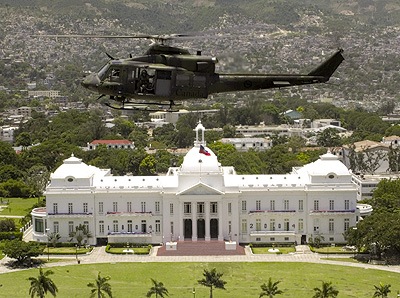





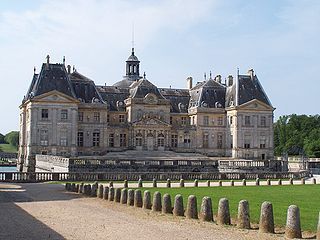

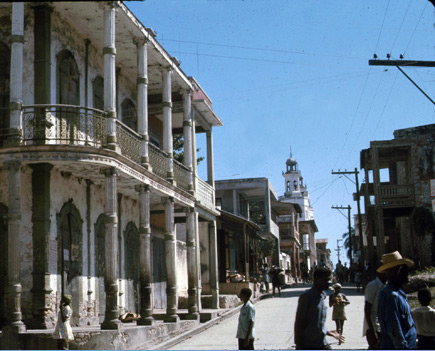

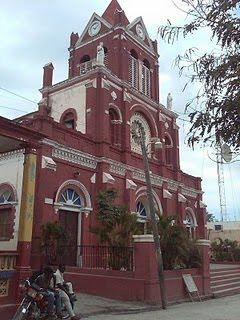




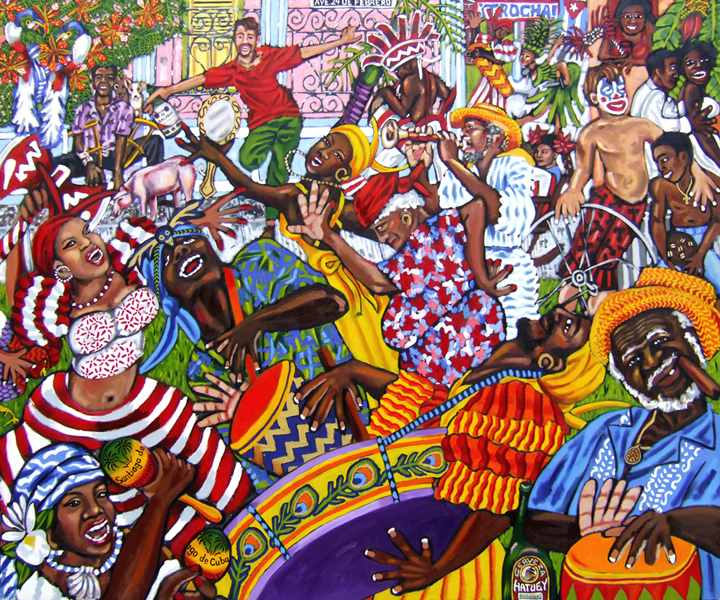


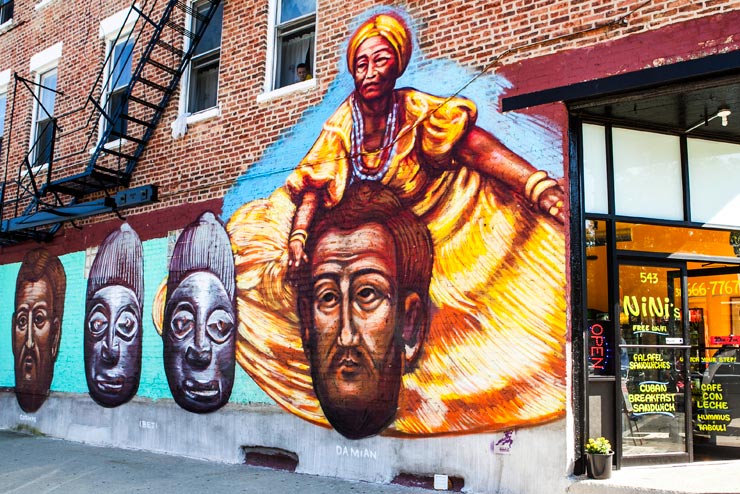






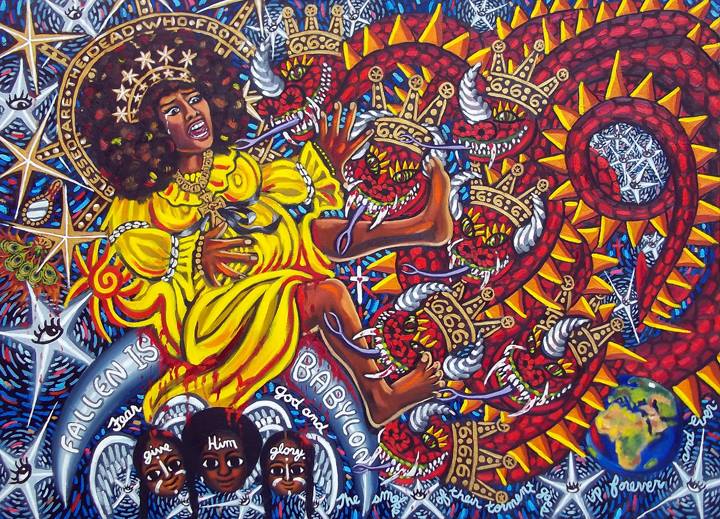




.jpg)









